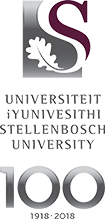This programme focuses almost exclusively on fields of study in Economics. Because of the importance of statistics for the development of high-level economic analysis, statistics or mathematical statistics up to the second-year level is required for this programme.

This programme focuses almost exclusively on fields of study in Economics. Because of the importance of statistics for the development of high-level economic analysis, statistics or mathematical statistics up to the second-year level is required for this programme. In addition to the broad programme, four focal areas are offered:
The BCom (Economic Sciences) programme offers you a relatively free choice of modules. In choosing your modules, please take note of the stipulations regarding timetable clashes in the general section at the beginning of this chapter. It is also possible within this programme to focus on a specific area of study, called a focal area.
Focal Areas:
The objective of focal areas is to help you choose a specific career focus within the BCom (Economic Sciences) programme. The focal area is not a programme, and the module combination is only a recommendation for you to make more focussed module choices.
The module choices in the tables describing each focal area fit in with the lecture and assessment timetables, but you are still free to take other elective modules in the broader programme if lecture and assessment timetables allow it.
If you complete all the compulsory modules of the focal area (in each year of study of the programme as indicated in this Yearbook part), the focal area will be indicated on your academic transcript.
Stellenbosch University (SU) is home to an academic community of 29 000 students (including 4 000 foreign students from 100 countries) as well as 3 000 permanent staff members (including 1 000 academics) on five campuses.
The historical oak-lined university town amongst the Boland Mountains in the Winelands of the Western Cape creates a unique campus atmosphere, which attracts local and foreign students alike. On the main campus, paved walkways wind between campus buildings – some dating from previous centuries; others just a few years old.
Architecture from various eras attests to the sound academic foundation and establishment of an institution of excellence. This, together with the scenic beauty of the area; state-of-the-art, environmentally friendly facilities and technology, as well as visionary thinking about the creation of a sustainable 21st-century institution, makes for the unique character of Stellenbosch University.
Academic Excellence and Innovation:
The University is amongst South Africa's leading tertiary institutions based on research output, student pass rates and rated scientists, and is recognised internationally as an academic institution of excellence.
It boasts the highest weighted research output per full-time academic staff member of all South African universities and the second-highest number of scientists in South Africa who have been rated by the National Research Foundation (NRF). It also has the highest student success rate in the country.
SU is cementing its reputation as a world-class institution. According to the Times Higher Education World University Rankings, SU is one of the top 300 universities in the world, and among the top 20 in BRICS countries.
It also features among the world's elite institutions in 10 of the 36 subjects featured in the QS World University Rankings by Subject for 2015. SU was also included in the 2014 CWTS Leiden Ranking, which measures the scientific performance of 750 major universities worldwide.
With 18 research chairs under the NRF South African Research Chairs Initiative (SARChi), the University is regarded as a leader in the fields of biomedical tuberculosis research and management, wine biotechnology, animal sciences and mathematical biosciences.
Another SARChi chair, in the field of invasion biology, is shared between SU and the University of Venda. This constitutes but one of SU's many partnerships, both local and international. As a preferred research partner, SU also participates in various international academic networks.
Faculties and Campuses:
SU has ten faculties: AgriSciences, Economic and Management Sciences, Medicine and Health Sciences, Engineering, Military Sciences, Arts and Social Sciences, Science, Education, Law, and Theology.
© 2025 coursetakers.com All Rights Reserved. Terms and Conditions of use | Privacy Policy